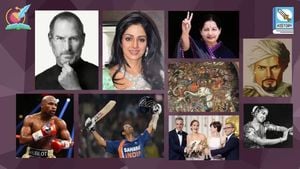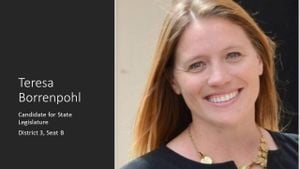Abla Dzifa Gomashie, the Minister of Tourism, Culture and Creative Arts, has underscored the need for policy intervention to help with the use of native languages as a medium of instruction at the basic education level. She urged the Minister of Education and the Ghana Education Service (GES) to provide logistical support to teachers and educational institutions to sustain the use of indigenous languages for teaching and learning.
Gomashie, also the Member of Parliament for Ketu South, made the call during her statement to mark this year’s International Mother Language Day, which took place on February 21. This year’s celebration commemorates the 25th anniversary of the day, reminding the world of the necessity to preserve and protect linguistic diversity and to promote the use of mother tongues.
The minister pointed out the alarming trend of many indigenous languages facing decline or even extinction due to factors like globalization and urbanization and their limited use within formal education and public life. She cautioned against the gradual erosion of native languages, which threatens to destabilize cultural identity and the inter-generational transfer of knowledge.
"The use of indigenous languages is not only a means of communication but also carries our collective history, traditions and cultural values. It is also an important element for preserving our cultural heritage and identity," Gomashie emphasized.
Ghana is home to over 80 indigenous languages spoken by various ethnic groups across the country, adding both richness and complexity to the nation’s cultural fabric. Recognizing this diversity, secretary Gomashie requested the GES and the sector minister to make concerted efforts to train more teachers capable of instructing students in local languages.
Beyond discussions of education, the proposal to introduce Ghanaian languages within parliamentary proceedings has sparked significant debate. Some view this policy as a necessary step toward cultural preservation and inclusivity, but many argue about its practicality, considering existing resource challenges.
Critics raise concerns, noting the considerable investments required for translation services and training and the varying degrees of language proficiency among parliamentarians. Given Ghana's wealth of languages and dialects, there are potential complications with standardization, which may unintentionally marginalize speakers of less dominant languages.
Historically, the Ghana Broadcasting Corporation (GBC) has been pivotal in promoting local languages. During times when rediffusion boxes prevailed, GBC broadcast news three times daily across various Ghanaian languages, including Hausa, Nzema, Dagbani, Ewe, Ga, and Akan. Such broadcasts were incredibly important for bridging linguistic divides and fostering national unity.
Now, with calls for GBC to be resourced more effectively, it is argued to be necessary. Their ability to present news and educational programs using Ghanaian languages can significantly contribute to both cultural preservation and inclusivity. Broadcasting information in local languages can help maintain deep connections to cultural roots and boost national pride among citizens.
With the backing of well-resourced GBC, Ghana can enrich its media offerings to support educational initiatives, particularly among rural and underserved populations, helping bolster literacy rates and overall learning outcomes.
To support the local languages, it's pivotal to incorporate them within the education system across all levels. By integrating Ghanaian languages from Junior High School through to tertiary education, students gain proficiency and appreciation for their native tongues.
Parental involvement also proves instrumental; parents speaking local languages at home tend to nurture fluency and instill cultural values within their children. This at-home connection will not only aid language preservation but also solidify familial and cultural identities.
Colleges of education stand at the forefront of shaping Ghana's educational future by training the next generation of teachers. By equipping educators with the necessary skills to engage students, these institutions can significantly influence language preservation efforts.
While the proposition of utilizing Ghanaian languages within Parliament merits discussion, addressing the practical obstacles must take precedence. Similarly, adequately resourcing GBC for the refinement of their language practices is both feasible and impactful. By investing strategically, Ghana can effectively promote cultural heritage and inclusivity, thereby weaving the various threads of its linguistic diversity more closely together, enhancing unity across the nation.



